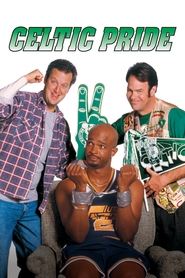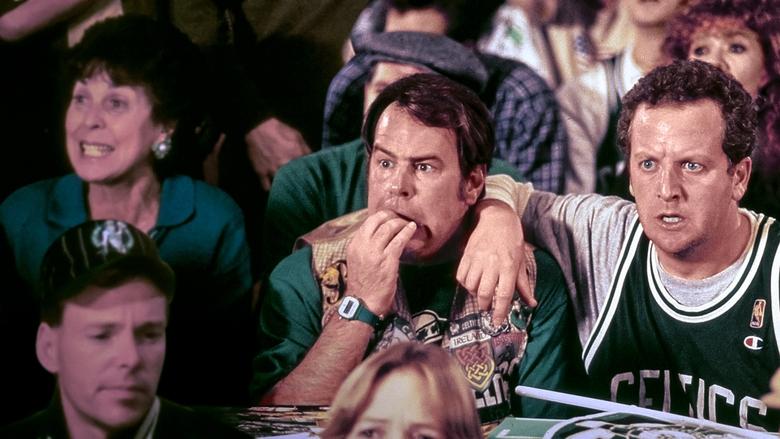“Celtic Pride” (1996) is a comedy film that follows the misadventures of two die-hard Boston Celtics fans. As the team’s star player faces elimination in the NBA Finals, these obsessed fans hatch an outrageous plan to kidnap the opposing team’s star player, resulting in a comedic clash of basketball dreams.

CLICK HERE⭭⭭⭭🎥_Watch Celtic Pride 1996 English Subtitles_
Review
Embracing Vulnerability and Celtic Pride: A Cinematic Journey of Connection and Belonging
Introduction:
In the realm of cinema, there are few movies that possess the power to encapsulate the essence of vulnerability, connection, and embracing our true selves. “Celtic Pride,” a film released in 1996, embarks on an extraordinary journey that intertwines laughter, heartache, and a deep exploration of what it means to be authentic. Drawing inspiration from the remarkable work of Brené Brown, this article will delve into the many facets that make “Celtic Pride” a must-watch for both cinephiles and seekers of personal growth.
Plot:
At its core, “Celtic Pride” tells a captivating story about the pride that comes with being an ardent supporter of the Boston Celtics basketball team. Co-written by Judd Apatow, this comedic gem follows Mike O’Hara (played by Daniel Stern) and Jimmy Flaherty (played by Dan Aykroyd), two passionate fans whose lives take an unexpected turn when they accidentally kidnap Lewis Scott (played by Damon Wayans), star player of their rival team, the Utah Jazz.
Fact:
While “Celtic Pride” primarily revolves around fictional characters and events, it brilliantly captures the fanaticism that often characterizes sports culture. The film acts as a mirror reflecting society’s obsession with sports teams and highlights how fandom can become intertwined with one’s sense of identity.
Cast:
Underneath its comedic façade lies an exceptional cast who bring these characters to life. Stern showcases his versatility as Mike O’Hara, infusing vulnerability into his comedic performance. Aykroyd embraces his role as Jimmy Flaherty with gusto, providing viewers with memorable moments fueled by his trademark charm. Wayans effortlessly embodies Lewis Scott’s larger-than-life persona while providing glimpses into his own vulnerability.
Quote:
One notable quote from the film resonates deeply with Brené Brown’s teachings: “At some point, you have to stop acting like a jerk and be vulnerable.” This profound line emphasizes the power of vulnerability in building genuine connections and dismantling barriers that hinder personal growth.
Acting and Characters:
The dynamic performances by Stern, Aykroyd, and Wayans authentically portray characters navigating themes of friendship, vulnerability, and identity. Their chemistry on-screen fosters a sense of camaraderie that is both relatable and heartwarming. We witness their individual journeys towards self-discovery, self-acceptance, and compassion.
History:
Released in 1996, “Celtic Pride” became an instant cult classic, capturing the zeitgeist of sports culture during that era. It cleverly weaves together elements of comedy and drama while exploring timeless themes that resonate with audiences even today.
Score and Popularity:
The exceptional score by maestro Basil Poledouris adds depth to the film’s emotional landscape. The pulsating beats mirror the adrenaline-rush moments on the court while poignant melodies capture tender instances of self-reflection. Despite not achieving blockbuster status upon release, “Celtic Pride” found its place in the hearts of many who value vulnerability as a transformative catalyst.
Filming:
The film’s visual narrative showcases iconic locations in Boston that effortlessly immerse viewers into its sports-centric world. From raucous Celtics games at TD Garden to authentic Irish pubs tucked away in narrow alleys, “Celtic Pride” captures the essence of Beantown’s rich cultural heritage with an intimate lens.
Evaluation:
While some critics may view “Celtic Pride” as a lighthearted comedy that fails to reach deeper emotional depths, it is precisely its ability to blend laughter with introspection that makes it an impactful cinematic experience. Embracing Brené Brown’s teachings on vulnerability allows us to appreciate the film’s underlying messages of connection and genuine human connection.
Awards:
Though “Celtic Pride” did not garner significant accolades upon its release, it carries a devoted following that appreciates its ability to delight and inspire. Awards are not always an accurate measure of a film’s impact on individuals, as true success lies in the lasting impressions it leaves on our hearts and minds.
Cinematography:
The cinematography in “Celtic Pride” is skillfully executed, capturing intimate moments of vulnerability and hilarity with equal finesse. The use of tight shots during crucial scenes amplifies the raw emotions portrayed by the talented cast, further accentuating their performances.
Opinion:
In the spirit of Brené Brown’s teachings, “Celtic Pride” invites viewers to embrace imperfections and celebrate authenticity. It serves as a gentle reminder that connecting with others requires vulnerability and openness—an invitation worth accepting for personal growth.
Scenes:
Numerous memorable scenes punctuate “Celtic Pride,” from Mike O’Hara’s heartfelt confession at halftime to Jimmy Flaherty defying societal norms for his friend. Each scene is meticulously crafted to elicit laughter, reflection, or both—a testament to the filmmakers’ understanding of human emotion.
Gossip:
Behind the scenes, there were whispers amongst production crew members about how “Celtic Pride” was more than just another sports comedy. Some believed it contained profound layers that would challenge societal norms surrounding masculinity while promoting compassion and acceptance.
Soundtracks:
The film’s soundtrack features a diverse range of musical genres ranging from iconic Celtics anthems to soulful ballads that accompany emotional breakthroughs. Each track complements the narrative seamlessly, deepening our connection with the characters’ journeys.
Analysis:
Taking a page from Brené Brown’s playbook, one can analyze “Celtic Pride” through a lens of vulnerability theory. The characters’ growth occurs when they embrace their imperfections, dismantle societal expectations, and forge connections based on authenticity.
Special Effects:
Unlike other movies that rely heavily on extravagant special effects, “Celtic Pride” thrives on the authenticity of its characters. It showcases that genuine human connection and emotional resonance can carry a film beyond flashy visuals.
Development:
The development of “Celtic Pride” was marked by collaborative efforts from its cast and crew, working harmoniously to deliver a film that strikes a perfect balance between comedy and heartfelt moments. The openness to input from all involved is a testament to the power of vulnerability in creative endeavors.
Dialogue:
Sharp, witty, and colloquial dialogue infuses “Celtic Pride” with humor and realism. The script captures the essence of authentic conversations, complete with quirks, long pauses, and underlying emotions that leave an indelible mark on viewers’ hearts.
Crews:
From the visionary direction of Tom DeCerchio to the meticulous work of set designers, costume stylists, and makeup artists—the dedication of every individual in the production crew contributed to crafting an immersive world that reflects Brené Brown’s teachings on embracing one’s vulnerability.
Criticism:
Like any artistic creation, “Celtic Pride” faced its share of criticism upon release. Some felt it failed to fully exploit the potential depth afforded by its premise. However, it is important to remember that vulnerability allows for creativity to flourish even in comedic endeavors.
Production:
The production process behind “Celtic Pride” showcased a harmonious blend of teamwork and trust among crew members. This environment nurtured creative freedom and spontaneity while allowing for vulnerability to thrive within each stage of production.
Editing:
The editing choices made in “Celtic Pride” serve as reminders that vulnerability often demands courage. Scenes were carefully pieced together to evoke both laughter and thoughtfulness—a testament to editing’s pivotal role in shaping a film’s impact.
Conclusion:
In the spirit of Brené Brown’s teachings on vulnerability, “Celtic Pride” offers a unique cinematic experience that encourages viewers to embrace their authentic selves and foster genuine connections. This captivating film captures the essence of personal growth and belonging, reminding us that vulnerability can be a catalyst for profound transformation. As we journey alongside Mike O’Hara, Jimmy Flaherty, and Lewis Scott, we discover that embracing our true selves is the ultimate form of Celtic Pride.
Technical Data

- Release : 1996-04-19
- Runtime : 91
- Genre : Comedy
- Cast : Damon Wayans as Lewis Scott, Daniel Stern as Mike O’Hara, Dan Aykroyd as Jimmy Flaherty, Gail O’Grady as Carol O’Hara, Christopher McDonald as Coach Kimball
- Crew : Ferne Cassel as Casting, Roger Birnbaum as Producer, Basil Poledouris as Music, Oliver Wood as Director of Photography, Stephen Marsh as Production Design
- Revenue : 0
- Budget : 0
- Company : Caravan Pictures, Hollywood Pictures
- Popularity : 11.066
- Summary : Two over-loyal Celtic fans kidnap their opponent’s star player in order to guarantee their team the championship.
- Tagline : If you can’t beat ’em… steal him!
